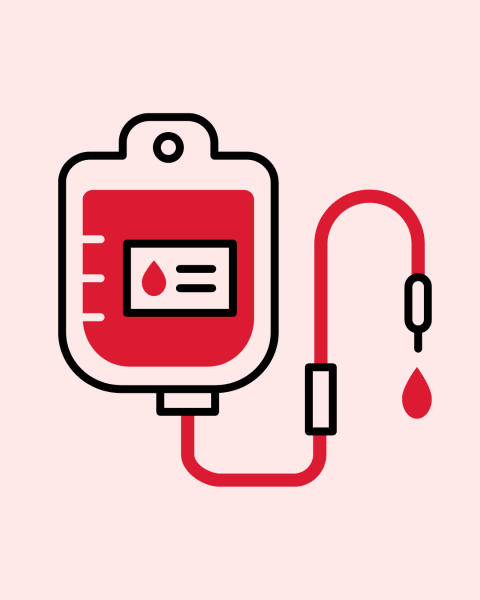
In collaboration with the American Red Cross, GCSU hosts many blood drives throughout each school year. In 2025, they hosted a blood drive on March 1 and March 2, and another one will be taking place on Tuesday, April 1, from 11 a.m. to 5 p.m. and on Wednesday, April 2, from 10 a.m. to 4 p.m. in the Maxwell Student Union, or the MAX.
The American Red Cross was founded by Clara Barton on May 21, 1881, with the goal of serving people in need. The organization received congressional charter in 1900 and was tasked with providing disaster relief in the United States and around the world, as well as providing services to the members of the American armed forces and their families.
The Red Cross organization’s services include: disaster relief, blood services, training and certification, service to Armed forces and international services.
“Our network of generous donors, volunteers and employees share a mission of preventing and relieving suffering, here at home and around the world,” according to the American Red Cross.
At GCSU, the partnership between the American Red Cross and GCSU’s GIVE center has been active for over 15 years. The GIVE Center’s creation took place between 1996 and 1997, with the Red Cross being a long-standing partner.
“We’ve had a good partnership for so long that we’ve continued hosting those events, and traditionally, we meet or exceed their donation goals because they work on a regional basis,” said Ashley Copeland, director of community engagement and service at GCSU’s GIVE Center.
Copeland detailed that the benefits of the relationship between Red Cross and the university stem from the student recognition of the organization in the services they provide, like their blood drives and disaster relief.
“A few of our organizations have the Red Cross as their designated philanthropy,” Copeland said. “It fills their blood banks, especially in times of need and big disasters like we’ve seen in the past couple years, especially in the south.”
April’s drive will be sponsored by Fraternity and Sorority Life as a part of their Greek Week. The blood drive provides a competition for a Greek letter organization to win a trophy that can go towards Greek Week points.
The blood drives offer students the opportunity to get volunteer hours, donate blood and most importantly, help save lives.
“I personally have volunteered many times at the blood drives here at Georgia College,” said Reese Williams, a senior nursing student. “As a nursing student, I think it’s a great idea to get exposure to helping people in a minor medical setting.”
Williams, who has volunteered in past blood drives, expressed the importance of these blood drives and donating blood in general.
“I think the best benefit of donating blood is the feeling of saving lives,” Williams said. “How awesome that something so small can have such a big impact.”
Students interested in donating at the blood drives can do so by making an appointment ahead of time by using the QR code placed on the fliers spread throughout campus, on the American Red Cross blood donor app or on the Red Cross website. For those who want to donate but have yet to make an appointment are welcome to drop-in during the available hours, with an expected wait.
Students or locals who donate at the April drive will receive a t-shirt, as well as a $15 Amazon gift card with a valid email.
Rachel Pope, a health educator for the Wellness and Recreation Center, encourages students to donate blood at the drives, emphasizing the need for blood. She expressed how the process may make a donor feel uncomfortable, but that it takes about 30 minutes out of their day.
“I have friends that have had to have blood transfusions, so I would hope that someone would want to give to save their friend,” Pope said.
Pope, who is an avid blood donor, expressed how donating is the easiest way to help others and to give back to the community. She recognizes that giving blood can be intimidating, especially for students who have never donated.
“I think it’s nice to go in there with a friend and not do it by yourself because I’ve seen so many people come in and they’re unsure of what’s gonna happen,” Pope said. “So read-up, don’t watch any videos or anything. They take your blood for a finger prick, take your blood pressure and make sure your iron is high enough before they start the blood donation process.”

